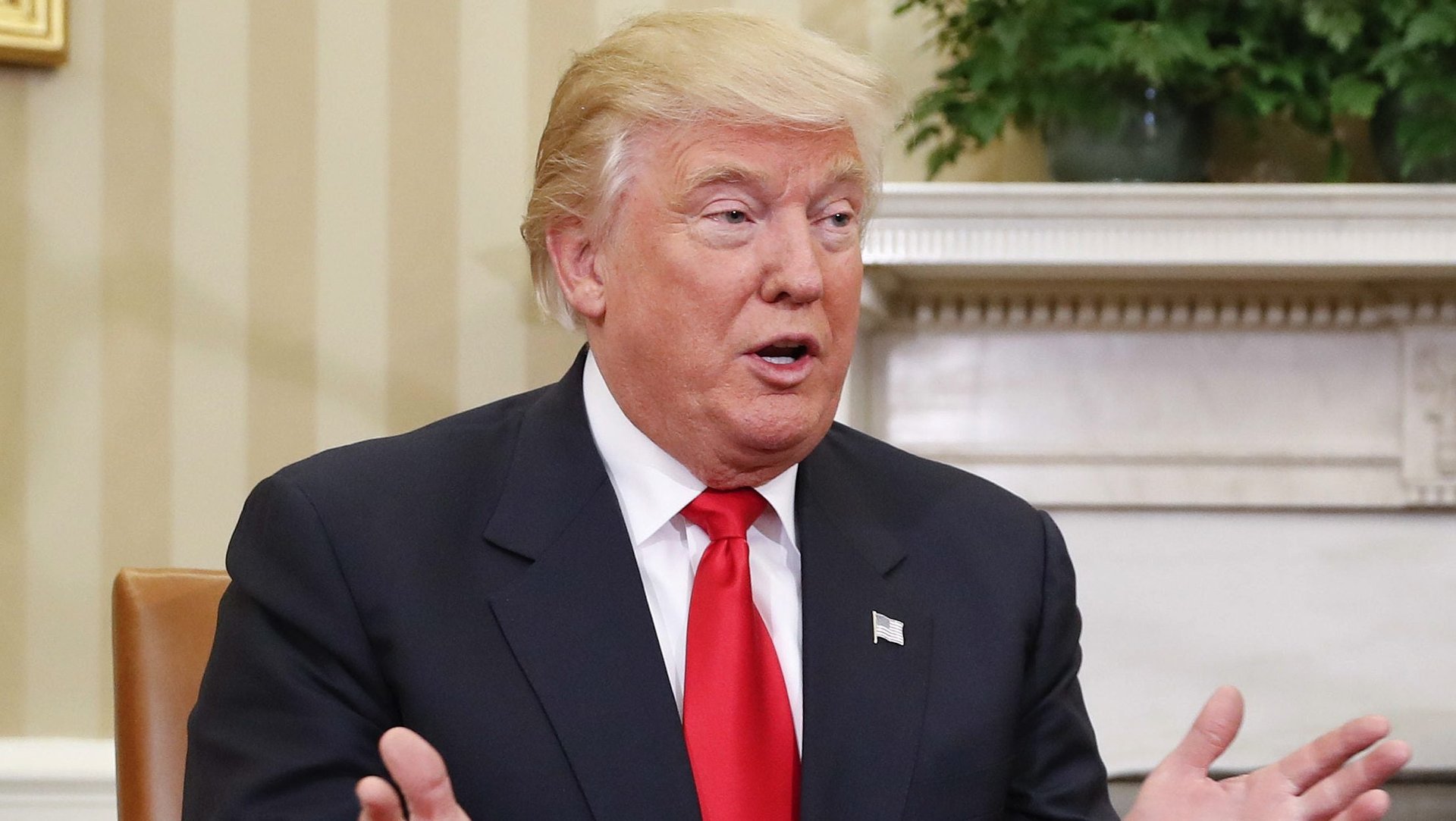Silicon Valley wrote its “concession speech” to Trump this week
Just one week ago, Silicon Valley presented a united front opposing Donald Trump, now the president-elect of the United States. Alphabet chairman Eric Schmidt was leading Hillary Clinton’s digital efforts. Technology workers had given 60 times more cash to Clinton compared to Trump, and 94% of venture capitalists surveyed on Nov. 9 were backing Clinton (so much for picking winners).


Just one week ago, Silicon Valley presented a united front opposing Donald Trump, now the president-elect of the United States. Alphabet chairman Eric Schmidt was leading Hillary Clinton’s digital efforts. Technology workers had given 60 times more cash to Clinton compared to Trump, and 94% of venture capitalists surveyed on Nov. 9 were backing Clinton (so much for picking winners).
And then came election night. As the results sank in, the concession tweets began. By Nov. 10, a trickle had turned into a flood as chastened executives, investors, and founders came to grips with reality. Most chose to strike a note of optimism about a candidate many in Silicon Valley had written off as a racist, unfit, and dangerous (the more restrained had lodged their anger with the ideas he was promoting).
This week, almost everyone was offering cooperation, caveated by allusions to the common good.
Microsoft CEO Satya Nadella took to LinkedIn to say, “We congratulate the president-elect, and look forward to working with all those elected yesterday,” while reiterating a commitment to foster “a diverse and inclusive culture.”
Even Trump’s most dismissive opponents extended an olive branch.
This has been the most divisive election in Silicon Valley history. While the technology industry likes to see itself as above the political fray, the opposite is true. Personal values permeate business here. People see their companies as extensions of themselves and their principles. That leads many to run their businesses as much with their hearts as their minds. Executives in other industries often see partisanship as a money-loser: The odds of winning are notably better if you play both sides of the game. In Silicon Valley, “changing the world” means tying up your values in every aspect of your business. It’s difficult to separate.
But that divorce may now become inevitable. A few weeks ago, entrepreneurs were lobbying firms to cut ties with Peter Thiel, Trump’s most outspoken supporter in the technology industry, for having given money to Trump’s campaign. Now, they must come to terms with the fact that, like or not, a Trump administration is inescapable for the next four years.
Some remained circumspect. Jack Dorsey, the CEO of Twitter, Trump’s primary platform during the election, left out any specifics about the about the president-elect in a series of Twitter posts. Instead, he emphasized support for the country’s founding principles.
A few went went straight to the barricades. Silicon Valley tech investor Shervin Pishevar has called for a secessionist movement for California and national dialogue about “the rampant sexism, racism and hate that Trump campaign has exposed.”
The biggest winner in all this may be Peter Thiel, who offered his congratulations in a statement to Business Insider. ”He has an awesomely difficult task, since it is long past time for us to face up to our country’s problems,” said the Facebook director and Silicon Valley investor. “We’re going to need all hands on deck.”